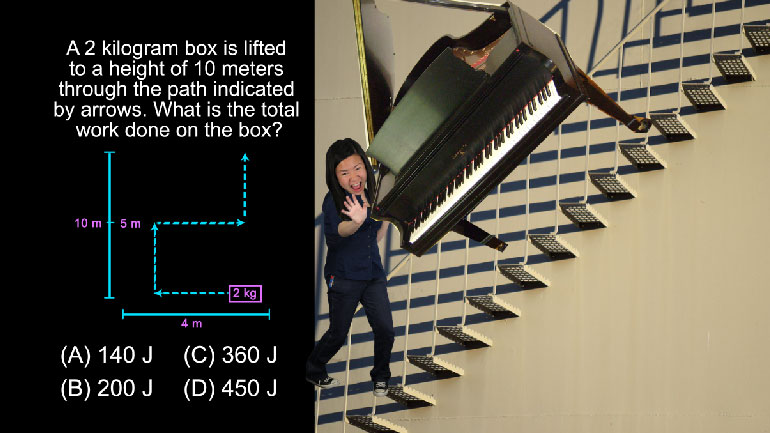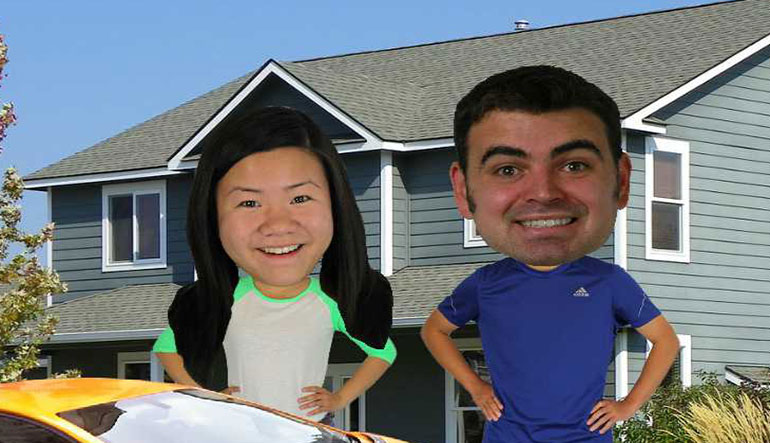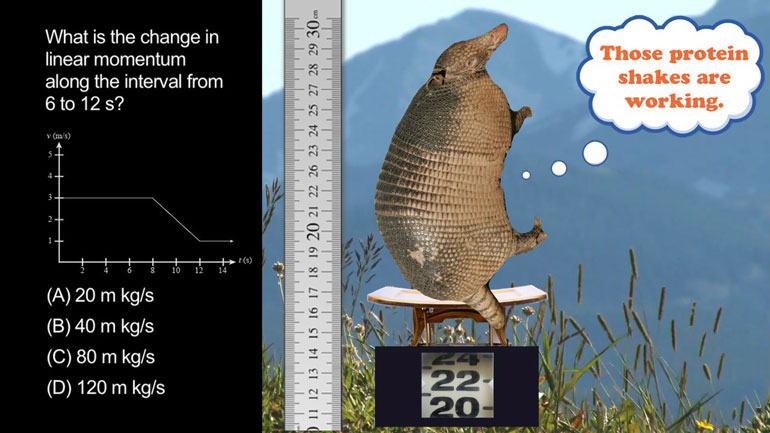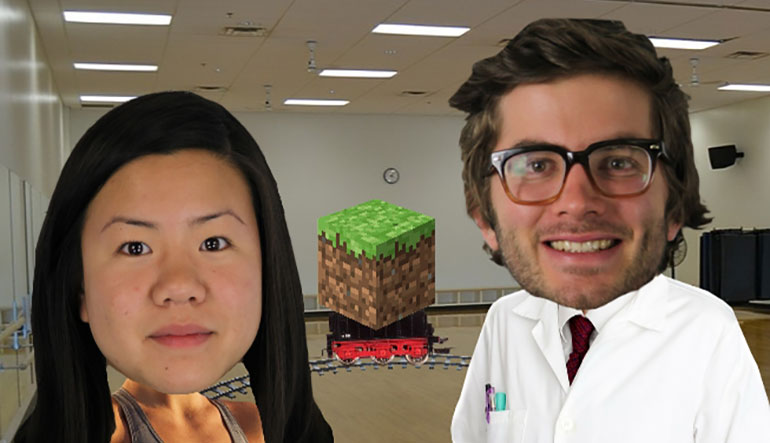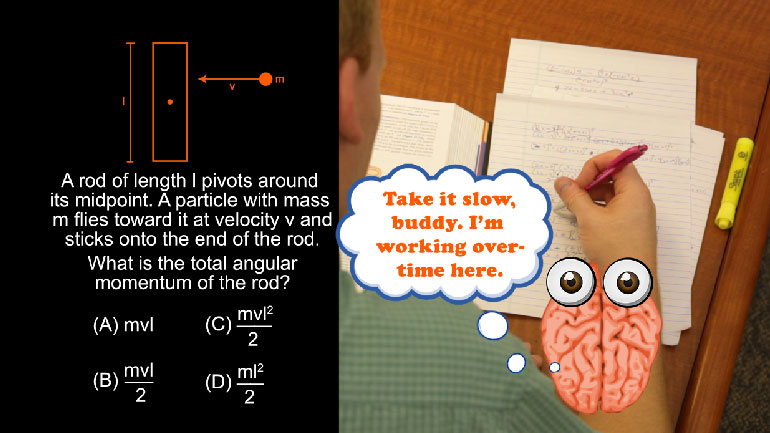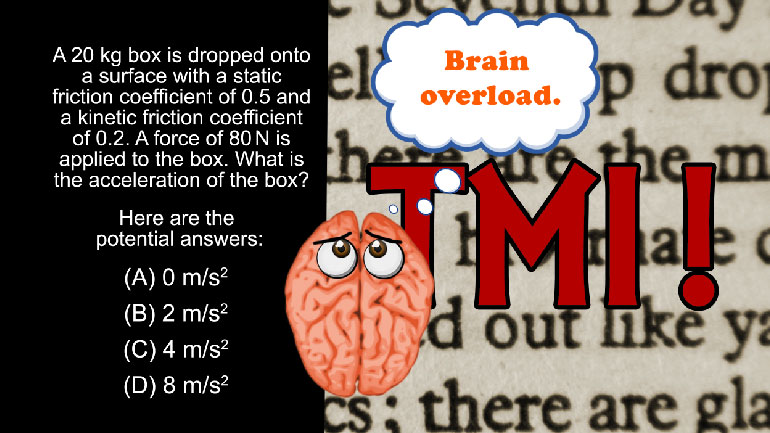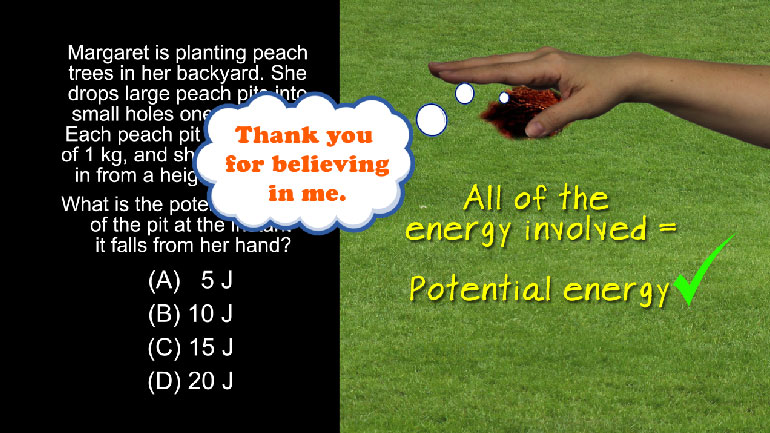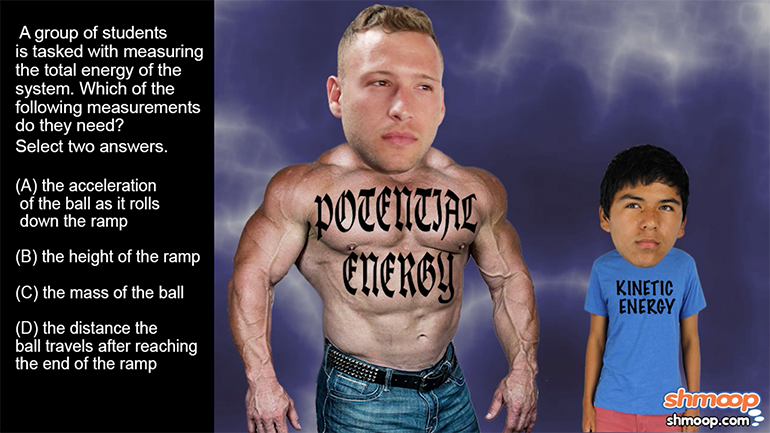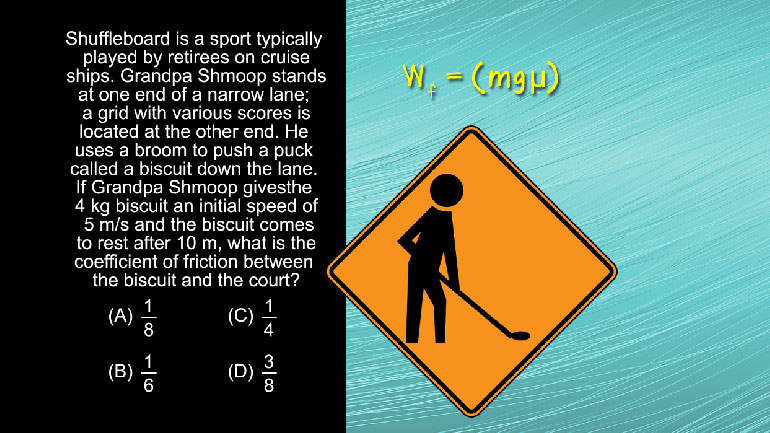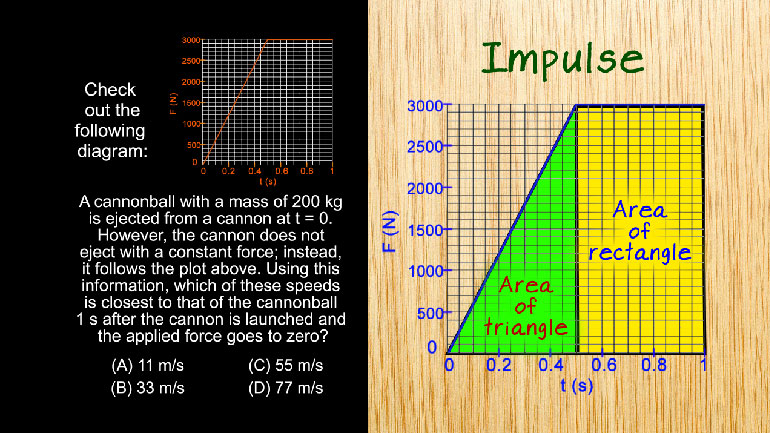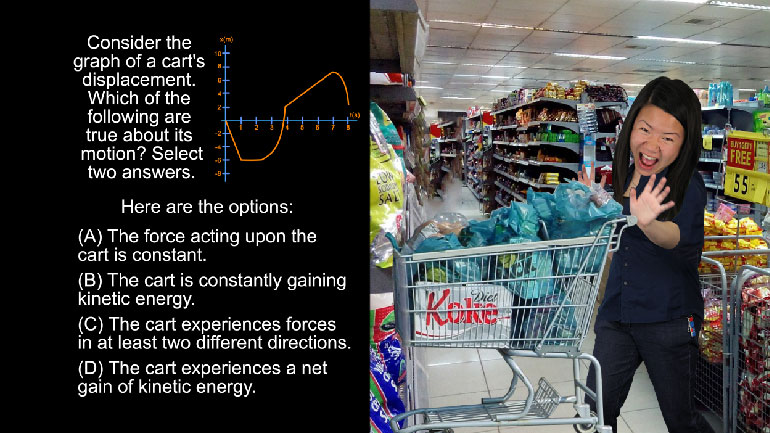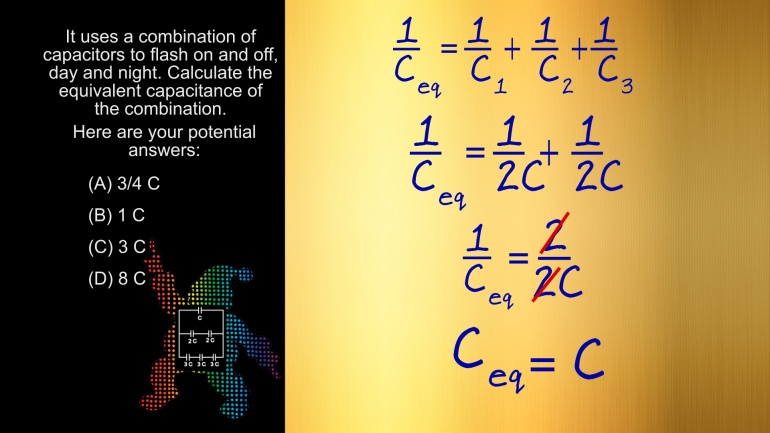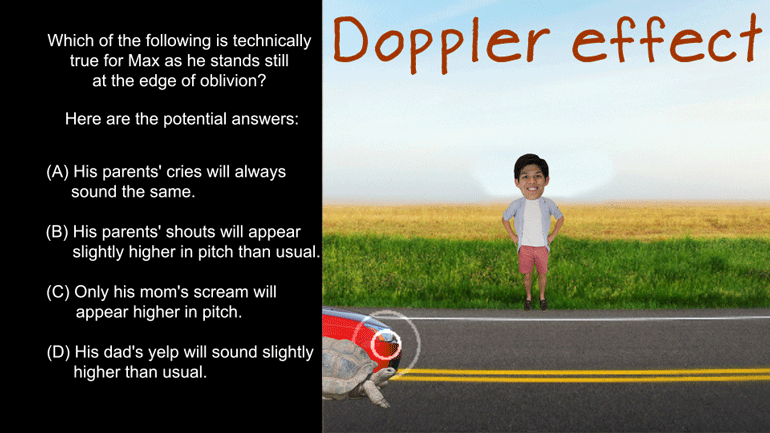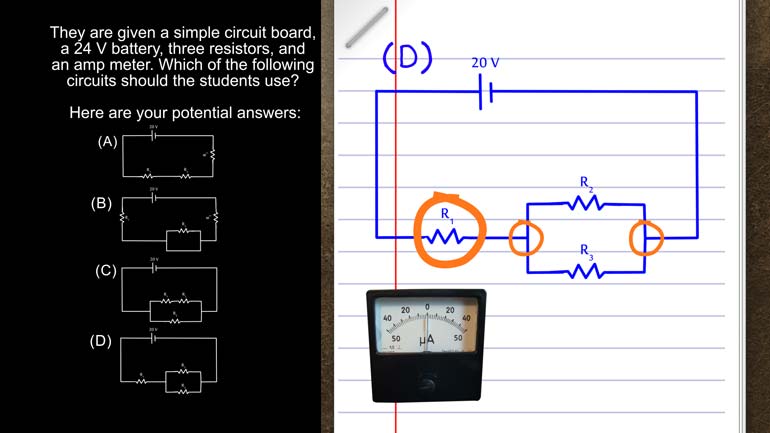ShmoopTube
Where Monty Python meets your 10th grade teacher.
Search Thousands of Shmoop Videos
System Interactions and Changes Videos 15 videos
We wouldn't give away the answer to this AP Physics question, not for all the joules in the crown. Come back when you've got some actual jewels. Th...
AP Physics 1: 1.2 System Interactions and Changes. What is the total mechanical energy of the system?
AP Physics 1: 1.4 System Interactions and Changes. What is the change in linear momentum?
AP Physics 1: 1.5 System Interactions and Changes 241 Views
Share It!
Description:
AP Physics 1: 1.5 System Interactions and Changes. How much energy is expended in one lap?
Transcript
- 00:00
Thank you We sneak and here's your smoke du jour
- 00:05
Brought to you by exercise You can go to the
- 00:07
gym to work out your body but you're here to
- 00:10
work out your mind All right Pushing a ten kilogram
- 00:13
block around a circular track is tiring you know although
Full Transcript
- 00:16
the block it's nothing out of the experience At least
- 00:19
you logged your workout for the week or a month
- 00:21
If the track has a radius of one hundred meters
- 00:24
and the block track surface has a kinetic coefficient of
- 00:28
friction of zero point to how much energy did you
- 00:32
expend in one lap and hear the pencil answers All
- 00:36
this funky letter writing Well first of all we have
- 00:39
to find a new personal trainer pushing a wooden block
- 00:42
around a track isn't gonna get us ready for beach
- 00:44
season That's what we get for hiring a physicist to
- 00:46
get us in shape huh Well to complete the calculation
- 00:49
here we need to employ the work energy the're Um
- 00:52
which defines the relationship between work and energy Yeah Wow
- 00:56
that was a shock That wasn't it Now work equals
- 00:58
force times distance And in our case here the force
- 01:01
we're looking at is the force of friction The force
- 01:04
of kinetic friction equals the coefficient of friction times mass
- 01:07
times gravity to determine the work done we just need
- 01:10
to add distance to the equation Since we're going in
- 01:13
a circle we need to know the circumference to calculate
- 01:16
the distance traveled We know that the radius of the
- 01:19
circle is a hundred meters so we just double it
- 01:21
Multiply that by pi to get the circumference Remember the
- 01:24
formula empire Okay Lookit our potential answers We can see
- 01:29
that pie is included in the final results so we
- 01:32
don't have to actually figure out the exact number We
- 01:35
can just stick with two hundred pie now Let's Plug
- 01:38
in the Numbers work equals point 2 times ten kilograms
- 01:43
times nine point eight meters per second squared times two
- 01:46
hundred py meters Which gives us an answer of three
- 01:49
thousand nine hundred twenty pie Jules well if we convert
- 01:53
jewels to kill a jules will get an answer of
- 01:56
three point nine Two pi killa jewels So option a
- 01:58
is the correct answer Now on to the next question
- 02:01
If we only go to the gym three times a
- 02:03
month How much are we really paying for our monthly 00:02:06.5 --> [endTime] membership No
Related Videos
AP Physics 1: 2.5 Changes and Conservation Law. At what point(s) in this situation is energy lost in any form?
AP Physics 1: 1.4 Waves. Which of the following is technically true for Max as he stands at the edge of oblivion?
AP Physics 1: 1.4 Changes and Conservation Laws. Find the current across R2.
AP Physics 1: 2.4 Changes and Conservation Laws. Which of the following circuits should the students use?
AP Physics 1: 1.5 Waves. What can possibly occur when the two waves reach each other?
